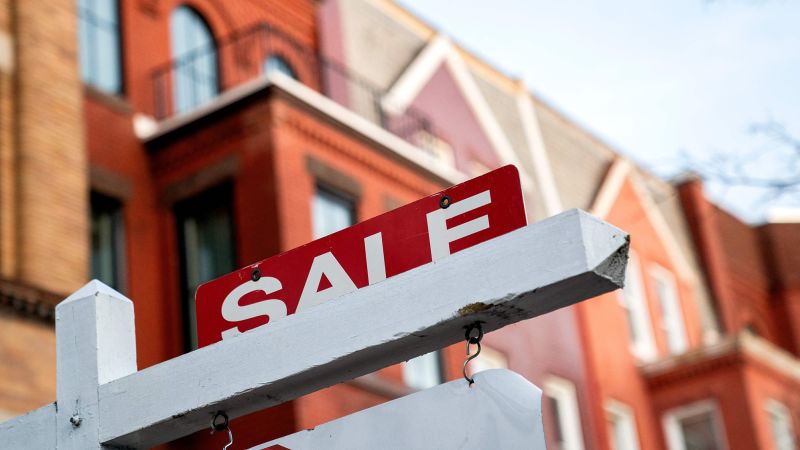

After rising for six weeks in a row, mortgage rates retreated last week.
The 30-year fixed-rate mortgage averaged 6.66% in the week ending October 5, down from 6.70% the week before, according to Freddie Mac.
Mortgage rates have more than doubled since the start of this year as the Federal Reserve continues its unprecedented campaign of hiking interest rates in order to tame soaring inflation. But uncertainty about the possibility of a recession and the impact of rate hikes on the economy have made mortgage rates more volatile.
“Mortgage rates decreased slightly this week due to ongoing economic uncertainty,” said Sam Khater, Freddie Mac’s chief economist. “However, rates remain quite high compared to just one year ago, meaning housing continues to be more expensive for potential homebuyers.”
The average mortgage rate is based on a survey of conventional home purchase loans for borrowers who put 20% down and have excellent credit, according to Freddie Mac. But many buyers who put down less money upfront or have less than perfect credit will pay more.
Investors and analysts have been scrutinizing each piece of economic data, searching for clues about the Fed’s next steps and the future of the US and global economies, said Danielle Hale, Realtor.com’s chief economist.
The Fed does not set the interest rates borrowers pay on mortgages directly, but its actions influence them. Mortgage rates tend to track the yield on 10-year US Treasury bonds. As investors see or anticipate rate hikes, they often sell government bonds, which sends yields higher and mortgage rates rise.
Over the past month, yields on 10-year Treasuries soared from 3.25% to nearly 4% before falling back around 3.75% this week.
Hale likened investors’ actions to a driver navigating a road in dense fog, prone to over-correcting at each turn.
“Signs that we are closer to the end of the tightening cycle – such as a surprisingly steep decline in job openings – tend to cause rates to slip, while rates bounce higher on signals like robust activity in the services sector,” Hale said.
Even though rates dipped slightly this week, the average interest rate for a 30-year, fixed-rate loan is still more than double what it was at this time last year.
A year ago, a buyer who put 20% down on a $390,000 home and financed the rest with a 30-year, fixed-rate mortgage at an average interest rate of 2.99% had a monthly mortgage payment of $1,314, according to calculations from Freddie Mac.
Today, a homeowner buying the same-priced house with an average rate of 6.66% would pay $2,005 a month in principal and interest. That’s $691 more each month.
As rates have been rising over the last several weeks, fewer people have been applying for mortgages said Bob Broeksmit, president and CEO of the Mortgage Bankers Association.
Ongoing economic uncertainty together with Hurricane Ian’s devastation in Florida resulted in a 14% decline in mortgage applications last week from the week before, he said.
MBA also found that an increasing number of borrowers are applying for adjustable rate mortgages, or ARMs. Applications for ARMs climbed to nearly 12% of all applications last week.
The average rate for the ARM tracked by Freddie Mac (a 5-year Treasury-indexed hybrid ARM) was 5.36%, more than a percentage point lower than the 30-year fixed rate.
“While rate increases are needed to tame inflation and alleviate the burden it places on household budgets, higher borrowing costs have caused consumers to think twice about major purchases like homes and cars,” said Hale.
With more prospective buyers sitting on the sidelines, those still looking to buy have a little more breathing room.
Correction: “Today’s home shoppers have more choices, but for many, the increased cost of financing and higher home prices mean fewer affordable options,” Hale said. “As challenging as it may be to set and stick to a budget in this environment of rising prices and rates, it’s more important than ever to do so.”
A previous version of this story misstated the number of weeks mortgage rates have been rising. Rates rose for six consecutive weeks before falling this week.
